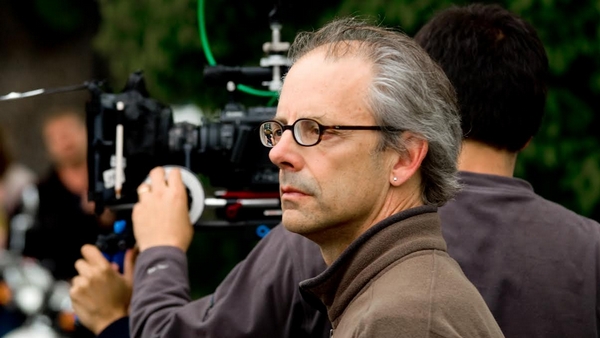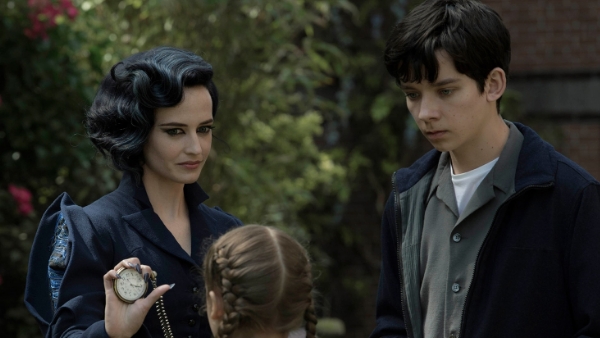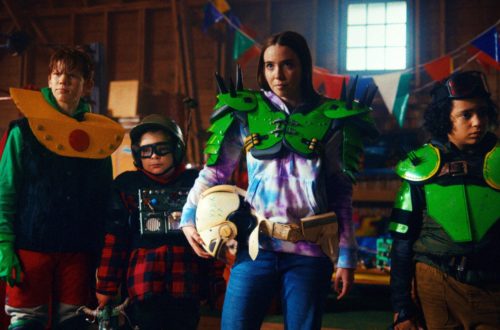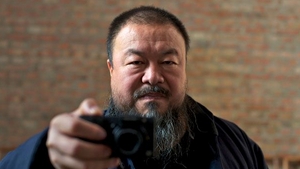
There’s a degree to which the story of Chinese artist-activist Ai Weiwei– filtered through the lens of director Allison Klayman– is incomprehensible. Not in terms of our ability to latch onto and absorb the information Klayman conveys to us, mind; referring to craft and technique, Ai Weiwei: Never Sorry has much and more to recommend it. Supporting all of that is the compelling narrative Klayman constructs about Ai’s life, career, and confrontations with Chinese authorities, and that final detail represents the element that makes the film so difficult to process.
Ai, perceptive, compassionate, and endlessly clever, lives in a world where creative expression can lead to a person vanishing into thin air, ingloriously detained for questioning and challenging his government’s behaviors and style of rule. The very thought of such blatant, unapologetic, and above all else deceptive censorship and abuse of position feels utterly, frighteningly alien to me. That should go without saying for several reasons, the least of which being that I’m just a film writer, but more than that it’s hard to fathom how that could happen in America. Here, we just try to smear your reputation on television through pundits and talking heads; there aren’t men waiting outside your door to shove a black bag over your head and drag you off to a dank cell in an undisclosed location. What Ai’s situation speaks to– the quashing of dissent– might make anybody’s blood run cold.
Maybe I’m getting ahead of myself. Never Sorry covers, for the most part, the span of Ai’s life, from early years spent living in the labor camp to which the Anti-Rightist Movement had assigned his father (poet Ai Qing) after denouncing him in 1958, to his time creating found art in New York; we, however, first meet him in 2008, which is when Klayman herself first encountered the man and subsequently began shooting her film. Thinking about it, that almost seems like kismet, as their aquaintence coincides with the Great Sichuan Earthquake, a devastating tragedy which took almost seventy thousand lives and caused nearly endless havoc in the southern part of the province, as well as Ai’s involvement in the design of the Beijing National Stadium.
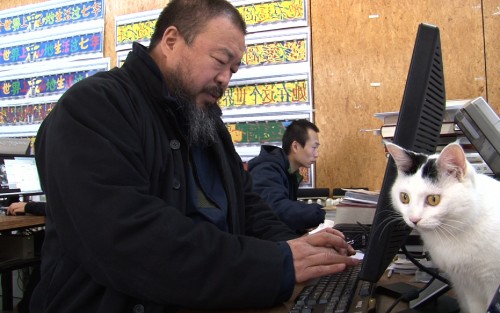
For Ai, these separate situations are inherently political, and right off the bat Klayman introduces us to his humanist side; he expresses outrage over the displacement of migrant populations for the sake of the Stadium and takes it upon himself to compile a list of all of the children who died in the quake when local Chinese government refuses to do so themselves. Inevitably, his efforts connected to both events become immortalized through his art in one way or another– most notably the list of names, which he prints out and hangs on a wall in his office. Seeing Ai in front of that representation of the lives lost in the disaster has an immediately sobering effect; it’s a quiet moment that’s undercut by our knowledge of the appalling callousness on behalf of people who should be more invested in the catastrophe.
Coupled with Ai’s other documented encounters with authority on both local and national scales– including his assault in Chengdu at the hands of police officers, which left him with cerebral hemorrhaging, and leading up to his eventual unceremonious and unlawful arrest in April of last year– Never Sorry riles. Discussions of sovereignty need not apply; what happens to Ai as well as his associates (not to mention fellow dissidents like Liu Xiaobo, who received the Nobel Peace Prize* in 2010 while serving the fourth term of an eleven year sentence he received courtesy of you-know-who) over the span of time the film covers will anger you, guaranteed. How can China’s powers-that-be allow and even encourage the rank trampling of civil liberties and freedom of expression? How can they display so little regard for human rights?
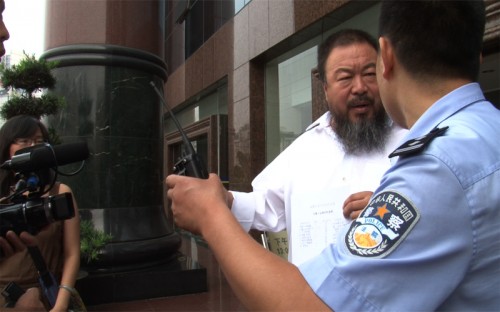
From the simmering outrage that develops throughout Never Sorry, though, something else of value emerges: a discourse on the role and nature of the artist in contemporary society. Ai may at times come off as mischievous, but understanding what he does and what he says through his artwork and through his activism (which I’d argue are one and the same) certainly comprises the film’s greatest purpose. In his own ways he’s participating in civil disobedience and questioning the status quo, but more than that he’s inviting his audiences to join him in demanding transparency and truth from their government. In other words, Ai’s job as an artist is to impel conversation and action about and against gross misuse of power by the people who wield it.
G-S-T RULING:
So ultimately I think of Ai Weiwei: Never Sorry as a film of undeniable and assured buoyancy. Unblinkingly, Klayman captures some shockingly overt displays of government tactics of dismissal on camera; fearlessly, Ai stands up to them. (Though he describes himself as being incredibly afraid.) There’s optimism in the knowledge that people who have the courage to come face-to-face with oppression and defy it do exist. More than that, they have the ability to motivate and impact people worldwide. Never Sorry, finishing up with Ai’s arrest, could have ended on a note of defeat but for the reaction of his supporters across the planet; people like him (and Never Sorry does a lot of legwork to portray bits and pieces his personal life and make him knowable in the act) may be rare as individuals, but the upside is that they have exposure and they have an audience. If that’s not reason to be hopeful, then what is?
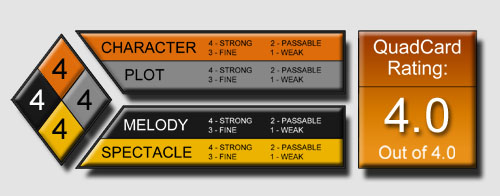
*Addendum: China heavily censored news of the announcement, and described his victory as a “desecration” to the prize.

